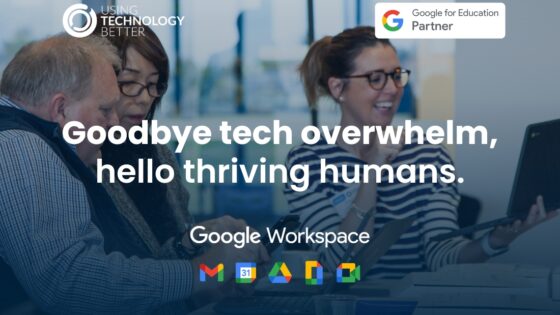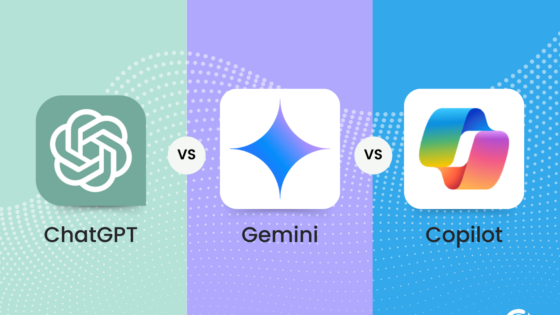
Besides the students in your school, one of the next most important groups of people are your student’s parents. Building positive relationships with parents is not always an easy journey – but there are some things we can do to help establish great relationships from the beginning.
Here are five ideas to help with this.
1. Make parents feel welcome
First impressions are so important, yet it’s often easy to overlook parents in the classroom when you are busy getting organised for the day, checking in with your students, making sure feedback has been given to students for their tasks and generally sorting classroom life. However it only takes a moment to acknowledge a parent, so a quick hello and a smile can be enough to make them feel appreciated.
A sign on your door inviting parents to come in and discuss their learning with their child can go a long way to making them feel welcome also.
2. Communicate regularly
When I was in the classroom, one of the most common things we used to hear from parents was that they felt there was a lack of clear communication – even though we felt we were doing a thorough job of this.
You can never have too many forms of communication!
[bctt tweet=” Use #digital tools to communicate easily with your parent community!” username=”donnagolightly1″]
With the advances in the digital world, and with many schools embracing modern technology, it is making it easier for schools to communicate in a variety of ways. Some of the more effective ways you could consider are:
-
Class blogs
What better way to communicate the learning that is happening than by sharing it with your parent community. Having an authentic audience makes learning more purposeful for your students and allows your parents to engage in more meaningful conversations with their children about what they are learning at school.
There are numerous tools that you could use to create a class blog, including Google Sites, Blogger, Adobe Spark Page, Sway, Weebly or Edublog.
-
Create a school app
There are many companies that now offer this service to schools. You can tailor the app to suit your school’s needs and even include links to class blogs from there.
You can add all the essential information parents would want to know – even consult the parents as too what information they think is important to include in a school app.
Some schools make the school app an authentic project for their students. They design, build and maintain it themselves. Glide is a great site that makes it very easy to create an app from a Google Sheet.
Google Slides can also be used to create a simple school app.
-
Digital newsletters
Offer your parents both digital and paper versions of your regular newsletter. Updating parents on what’s been happening and what’s coming up is so important these days – but if you offer digital newsletters as well as print versions parents have many more opportunities to check them out (and they don’t get screwed up in the bottom of school bags 😃)
Some of the more common sites used for creating engaging digital newsletters are:
- Adobe Spark Page
- Google Docs or Word documents – using the template option so that all the standard formatting is done and doesn’t need to be repeated each time.
- Smore
- Or even Book Creator. Each newsletter is added to a new page, with the most recent being added to the front. Having them all in a book format allows parents to easily see what has come before and catch up on any they may have missed – all in one place.
Having a link to the newsletters from the home page of the school website also allows for effective communication channels for parents.
3. Learn from your parents
Parent communities are full of people with many skills and a huge variety of experiences. Get to know your community and invite them in to share their expertise and their stories.
[bctt tweet=” What experiences and skills could your parents contribute to your Ss learning?” username=”donnagolightly1″]
Utilise the digital technologies available to schools and organise Google Hangouts or Skype calls with parents who may not necessarily be available to physically come to the school but have valuable messages to share. This also allows your students to go beyond the four walls of the classroom and develop skills in new areas of digital communications.
4. Be approachable
Education is rapidly changing and many parents will have conversations with their children about how “it wasn’t done like that in my day!”
Most of these parents have a genuine interest in understanding new pedagogies and want to know more about why and how things are changing. Having parent helpers in your room allows these parents to see first hand what their children’s classrooms are like and experience new ways of approaching education. The bonus is, you get an extra set of hands to help also!
Let your parents know you are happy to answer their queries. Some schools invite parents to contact teachers directly through email. Setting up a filter on your email is a great way of being able to control the volume of emails that may come from parents and allow you a more organised way of coping with them. Set aside a time in the day when you will address these emails and let your parents know when this is – so they don’t bombard you with more emails, thinking you ignored their first one!
Most importantly – acknowledge parents when you walk past them or when they enter your room. Never underestimate the power of the word ‘hello’ accompanied by a smile.
5. Invite feedback
Finally, invite your parents to offer their feedback. I know this can be a scary proposition, but allowing your parents to have a voice validates their relationship in the learning journey of their child/ren.
[bctt tweet=” Do you ask your parents for feedback on what’s happening in your classroom?” username=”donnagolightly1″]
Share a Google or Microsoft Form with some carefully worded questions around what you would like feedback about. The resulting spreadsheets may surprise you and could definitely be used to plan going forward.
Casual conversations are a great way to solicit feedback from parents and gather their thoughts and ideas on activities. There are many parents who are only too keen to offer their ideas and suggestions. Be careful to make them feel their ideas are valued – even if it’s the most far fetched thing you’ve ever heard! There are some amazing snippets to be gained from many of these conversations.
Most importantly, embrace and value all the members of your school community – from your teachers to your students, their families and the wider community surrounding them. As the saying goes – it takes a village to raise a child.
You can read more inspiring blogs from our team here.












